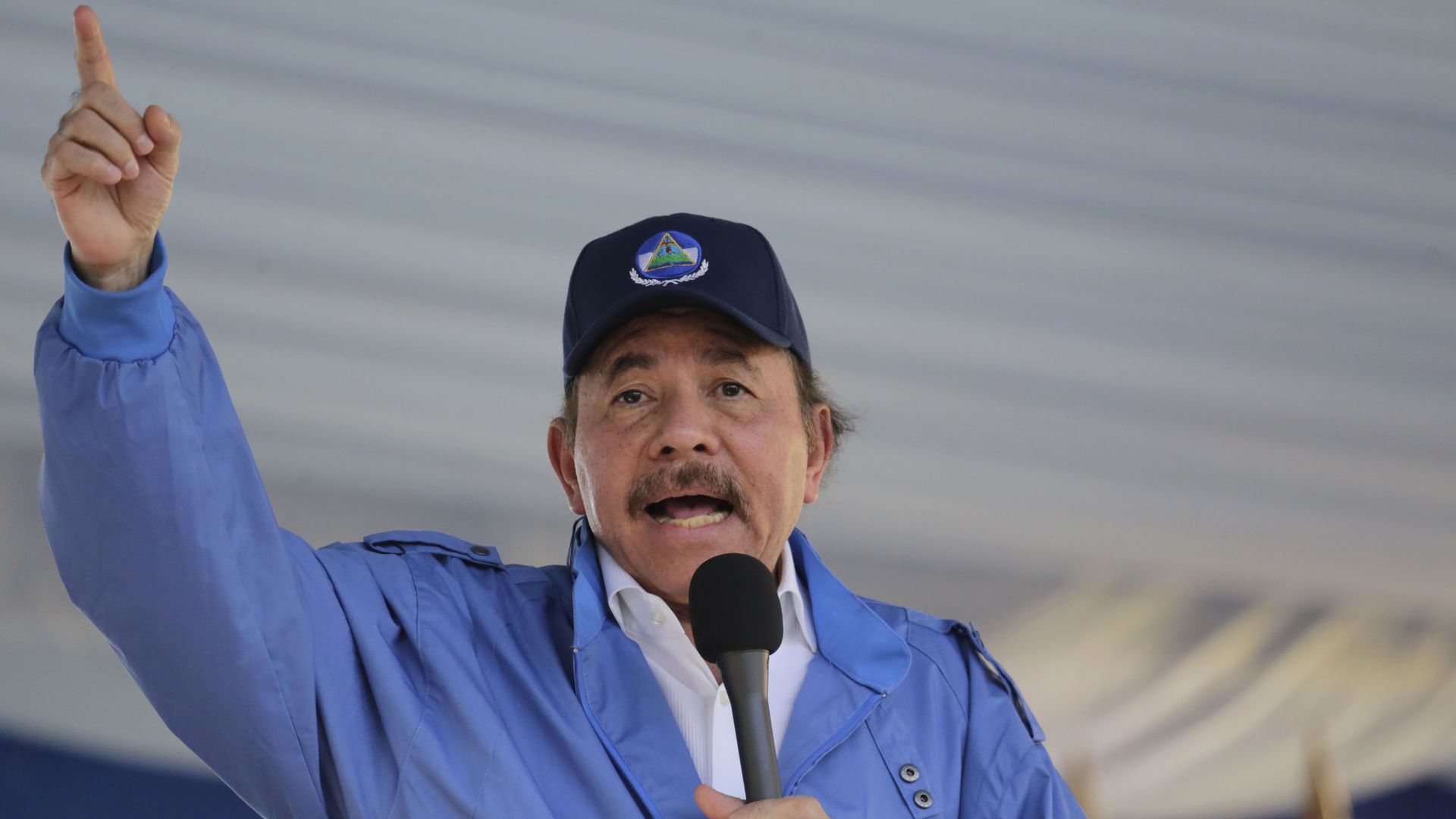How Ortega's rise to power sparked a human rights crisis in Nicaragua
Add Axios as your preferred source to
see more of our stories on Google.

Nicaraguan President Daniel Ortega speaks to supporters during a rally in Managua on August 22, 2018. Photo: Inti Ocon/AFP via Getty Images
The death toll of the government’s repression in Nicaragua has now reached more than 300, with many more in prison on charges of “terrorism.” Protestors and the government remain at a standoff as critics flee to Costa Rica for fear of reprisal.
The big picture: Like many political crises, the build-up to deadlock and death in Nicaragua was long-coming and obvious, even if what sparked it came as a surprise. Since President Daniel Ortega's return to national office in 2006 — the former guerrilla leader first came to power in 1979 during the Sandinista Revolution, but was voted out in 1990 — he has systematically tightened his grip over the state.
The background: Ortega paved his way back to power from the opposition after making a pact with the outgoing conservative president Arnoldo Alemán in 1990 that allowed for a presidential victory with only a plurality of the vote, eliminated third-party opposition and gave both Ortega and Alemán senate seats (and the latter immunity from prosecution for corruption). After his 2006 election, Ortega has both indirectly and directly packed the Supreme Court, placed the electoral commission firmly under his control, stacked the congress, and politicized the military and police forces. His control over the state led to re-election in 2016, this time with his wife Rosario Murillo as vice president in a flagrantly unfair vote.
Despite this slow power consolidation, though, there was no clear inflection point. Beaten down by the creeping control of the Ortega regime over state policy, Nicaraguan citizens remained largely subdued. At the same time, the one-time ally of the Soviet Union and bête noire of the Reagan administration learned from past mistakes from the 1980s and quietly co-opted Nicaragua’s small, incestuous business community.
Whether in East Germany or Czechoslovakia in 1989 or Tunisia in 2010, it’s hard to predict when popular anger against autocracy will reach a turning point. In Ortega's case, it was the government’s decision — later retracted — to raise social security contributions and reduce benefits, which sparked a wave protests that quickly spread to other citizen discontents. The Ortega regime responded first by unleashing its police forces against the protesters and later by creating paramilitary groups to do the government's dirty work.
What's next: Previous mediators such as the Catholic Church have pulled out after the Ortega government attacked a sanctuary in pursuit of student protestors. Ortega and his wife are hobbled. The question is how the domestic actors and international groups can win a peaceful negotiated transition. Right now, there’s no clear path forward.
Christopher Sabatini is an adjunct professor at Columbia University's School of International and Public Affairs, executive director of Global Americans and a non-resident fellow at Rice University's Baker Institute.
